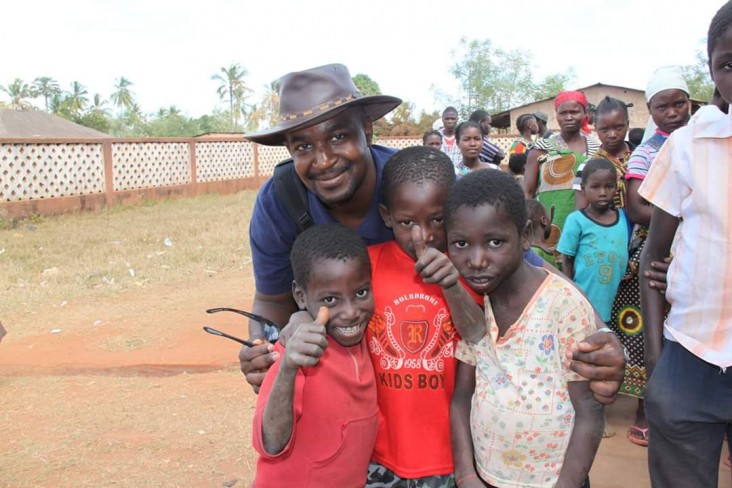Speeches Shim

USAID Staff in Action Against COVID-19
“I am fortunate to be here,” says Noah Kafumbe, who arrived in Uganda in 2018 to join the USAID mission as Senior Supply Chain Systems Advisor. Kafumbe, born and raised in Uganda, returned to his home country with his wife and their three children after twenty years in the United States and the United Kingdom - and three academic degrees, including a PhD, in his pocket. “The children like it here. They can have pets and get to meet the extended family. Exploring Uganda again through the lens of my American children has helped appreciate different dimensions of life and society,” he says.
Kafumbe manages USAID’s Uganda Health Supply Chain Activity, providing medical supply chain technical assistance to the Ministry of Health to ensure that the National Medical Stores have sufficient information, commodities and medicines for the medical facilities to provide the health care Ugandans need. With the arrival of COVID-19 in Uganda, Kafumbe’s focus expanded from the supply chain of commodities for HIV, malaria, tuberculosis and other common diseases to include COVID-19, and he currently sits in the National Task Force logistic subcommittee. “I do what I do with passion each day. I consider my work more of a calling than a job,” says Kafumbe.
The U.S. Government is working closely with the Ugandan Government to prevent and treat COVID-19. As part of this effort, USAID particularly provides technical advice and logistical support, together with its ongoing health and other assistance programs, to address COVID-19. The Uganda Health Supply Chain Activity, under Noah Kafumbe’s management, plays an important role in helping to strengthen health systems and processes which, in turn, enables the Ugandan Government to better respond to COVID-19.
A key aspect of this work is logistics coordination and data management. The Electronic Emergency Logistics Management Information System, also known as eELMIS, is a USAID-funded web-based tool that helps to receive and respond in real time to district or facility orders for medical supplies in any public health emergency. Through this tool, health facilities and partners at the national, district, and facility levels can enter their medical stock requests into the system and the Ministry of Health then processes the orders through the Emergency Operations Center. Both the district and the facility receive SMS alerts on the status of the order and can plan their actions accordingly.
In addition, different donors, like UNICEF, the World Food Programme, and the Red Cross, are able to coordinate and share information on commodities electronically to support the response operation. This creates transparency and accountability, and prevents the duplication of efforts.
“Being able to be the glue that brings partners together with a common objective for service delivery,” says Kafumbe, is one the most significant contributions he has been able to make to Uganda’s COVID-19 response through the eELMIS tool.
As a former certified emergency manager with Homeland Security in the United States, Kafumbe is an experienced crisis responder. “One of the principles of emergency response is that during the time of disaster it is not the time to exchange business cards,” he says, pointing out that the smooth collaboration between parties in Uganda is based on USAID’s long-term relationship with the Ministry of Health. “We work with them to help build their capacity and they run the show during a response like COVID-19, while routine health programs, such as immunizations, nutrition, maternal and child health, tuberculosis and HIV programs, continue.”
For him personally, success lies in the people he works with. “It is wonderful to work with a dedicated mission-driven team, where everyone brings their passion and skills to the fight. There are so many people on the team working behind the scene to ensure that we perform to the best of our ability,” he says about his USAID colleagues and partners who all aim to provide high quality health care and emergency response to the Ugandan people.

Comment
Make a general inquiry or suggest an improvement.